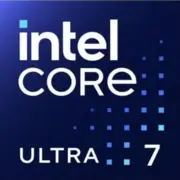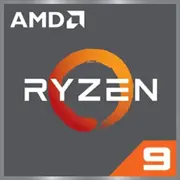Advantages
- More Total Cores: 20 (20 vs 12)
- Higher Technology: 3 nm (3 nm vs TSMC 5nm FinFET)
- Newer Launch Date: December 2024 (December 2024 vs September 2022)
- Larger L3 Cache: 64MB (24 MB shared vs 64MB)
Basic
Intel
Label Name
AMD
December 2024
Launch Date
September 2022
Desktop
Platform
Desktop
Core Ultra 7 265K
Model Name
?
The Intel processor number is just one of several factors - along with processor brand, system configurations, and system-level benchmarks - to be considered when choosing the right processor for your computing needs.
-
Arrow Lake-S
Code Name
Raphael
Intel
Foundry
-
Ultra 7 (Arrow Lake-S)
Generation
-
CPU Specifications
20
Total Cores
?
Cores is a hardware term that describes the number of independent central processing units in a single computing component (die or chip).
12
20
Total Threads
?
Where applicable, Intel® Hyper-Threading Technology is only available on Performance-cores.
24
8
Performance-cores
-
12
Efficient-cores
-
-
Basic Frequency
4.7GHz
-
Max Turbo Frequency
?
Max Turbo Frequency is the maximum single-core frequency at which the processor is capable of operating using Intel® Turbo Boost Technology and, if present, Intel® Turbo Boost Max Technology 3.0 and Intel® Thermal Velocity Boost. Frequency is typically measured in gigahertz (GHz), or billion cycles per second.
Up to 5.6GHz
3.3 GHz
Performance-core Base Frequency
-
1 GHz
Efficient-core Base Frequency
-
5.5 GHz
Performance-core Max Turbo Frequency
?
Maximum P-core turbo frequency derived from Intel® Turbo Boost Technology.
-
4.6 GHz
Efficient-core Max Turbo Frequency
?
Maximum E-core turbo frequency derived from Intel® Turbo Boost Technology.
-
112 KB per core
L1 Cache
768KB
23 MB
L2 Cache
12MB
24 MB shared
L3 Cache
64MB
Intel Socket 1851
CPU Socket
?
The socket is the component that provides the mechanical and electrical connections between the processor and motherboard.
AM5
Yes
Unlocked Multiplier
-
32
Multiplier
-
100 MHz
Bus Frequency
-
-
Unlocked for Overclocking
?
AMD`s product warranty does not cover damages caused by overclocking, even when overclocking is enabled via AMD hardware and/or software. GD-26.
Yes
3 nm
Technology
?
Lithography refers to the semiconductor technology used to manufacture an integrated circuit, and is reported in nanometer (nm), indicative of the size of features built on the semiconductor.
TSMC 5nm FinFET
125 W
TDP
170W
100 °C
Max. Operating Temperature
?
Junction Temperature is the maximum temperature allowed at the processor die.
95°C
5
PCIe Version
?
PCI Express is a high-speed serial computer expansion bus standard used for connecting high-speed components, replacing older standards such as AGP, PCI, and PCI-X. It has gone through multiple revisions and improvements since its initial release. PCIe 1.0 was first introduced in 2002, and in order to meet the growing demand for higher bandwidth, subsequent versions have been released over time.
-
Memory Specifications
DDR5-6400
Memory Type
?
Intel® processors come in four different types: Single Channel, Dual Channel, Triple Channel, and Flex Mode. Maximum supported memory speed may be lower when populating multiple DIMMs per channel on products that support multiple memory channels.
DDR5
256 GB
Max Memory Size
?
Max memory size refers to the maximum memory capacity supported by the processor.
-
2
Memory Channels
?
The number of memory channels refers to the bandwidth operation for real world application.
2
102.4 GB/s
Max Memory Bandwidth
?
Max Memory bandwidth is the maximum rate at which data can be read from or stored into a semiconductor memory by the processor (in GB/s).
-
Yes
ECC Memory Support
-
GPU Specifications
-
Integrated Graphics Model
?
An integrated GPU refers to the graphics core that is integrated into the CPU processor. Leveraging the processor's powerful computational capabilities and intelligent power efficiency management, it delivers outstanding graphics performance and a smooth application experience at a lower power consumption.
AMD Radeon™ Graphics
-
Graphics Frequency
?
Graphics max dynamic frequency refers to the maximum opportunistic graphics render clock frequency (in MHz) that can be supported using Intel® HD Graphics with Dynamic Frequency feature.
2200 MHz
-
Graphics Core Count
2
Miscellaneous
-
OS Support
Windows 11 - 64-Bit Edition, Windows 10 - 64-Bit Edition, RHEL x86 64-Bit, Ubuntu x86 64-Bit *Operating System (OS) support will vary by manufacturer.
Benchmarks
Geekbench 6 Single Core
Core Ultra 7 265K
3186
+10%
Ryzen 9 7900X
2908
Geekbench 6 Multi Core
Core Ultra 7 265K
19799
+12%
Ryzen 9 7900X
17718
Passmark CPU Single Core
Core Ultra 7 265K
4996
+17%
Ryzen 9 7900X
4273
Passmark CPU Multi Core
Core Ultra 7 265K
60244
+16%
Ryzen 9 7900X
51930
Share in social media
Or Link To Us
<a href="https://cputronic.com/cpu/compare/intel-core-ultra-7-265k-vs-amd-ryzen-9-7900x" target="_blank">Intel Core Ultra 7 265K vs AMD Ryzen 9 7900X</a>






